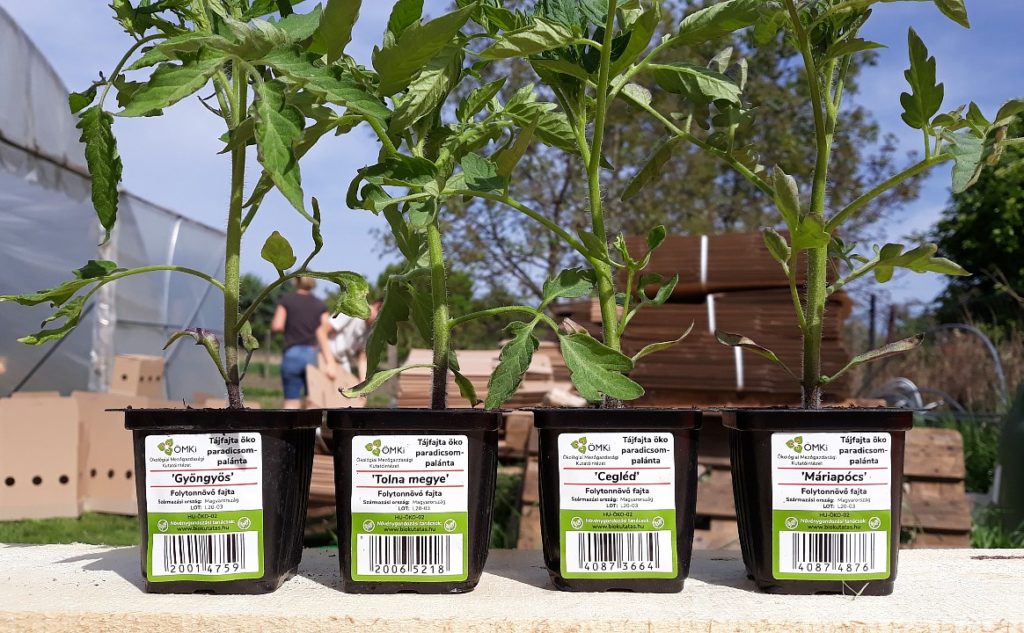Leading by example

Enriching the genetic diversity of plants
Hungarian Research Institute of Organic Agriculture brings landrace varieties back into people’s gardens and on their plates
WHAT:
In 2012, the Hungarian Research Institute of Organic Agriculture (ÖMKi) launched a participatory research project on the usability of Hungarian tomato landraces on organic farms. The aim of this project was to reintroduce landraces that were most suitable for organic production and hence, enrich genetic biodiversity of plants farmed in Hungary and preserve the country’s valuable agricultural heritage. As a result, ÖMKi successfully re-established landrace tomatoes in agricultural production in the form of ‘Landrace Tomato Seedlings’. Quickly, the tomatoes in diverse colours, shapes and flavours became part of the everyday diet of Hungarians.WHERE:
HungaryWHO & HOW:
Due to industrialized agriculture, which mainly uses modern breeds and hybrids, all tomato landraces had disappeared from public production in Hungary by 2012. To obtain the necessary seeds for their research, ÖMKi turned to the Centre for Plant Diversity, a gene bank located in Tápiószele. The first years of the research were dedicated to studying 35 tomato landraces on 28 cooperating organic farms across the country. From 2015 onwards, 10 tomato landraces were chosen to be studied in detail for three production years in cooperation with the Szent István University.The landraces that proved to be the best in terms of production result, taste and composition were presented to the world during a seedling adoption event in 2018. Thanks to the great interest and success, a national store chain helped to bring the landraces back to organic gardens. Over the past two years, more than 16,000 seedlings have been sold. To keep up with the growing demand, about 20,000 seedlings will be supplied in spring 2021 and can be picked up from various collection points.
Landraces can substantially contribute to agrobiodiversity, facilitate local (climate) adaptation strategies, promote better livelihoods for farmers and improve resilience through genetic diversity and an enriched everyday diet. For all these reasons, landraces should be reintroduced into our food and farming systems rather than being preserved in gene banks as heritage cultivars.
MORE INFO
Find the initiative on ÖMKi website, Facebook, Twitter and YouTube.
Jade Ducretot, ÖMKi
Email: jade.ducretot@biokutatas.hu
Photo Credit: ÖMKi
Do you have an initiative that makes food & farming systems across Europe fair, environmentally conscious, healthy & caring?
Click here to submit your own initiative!